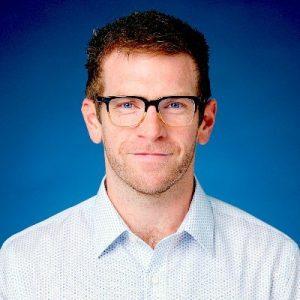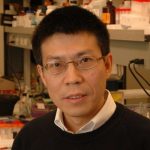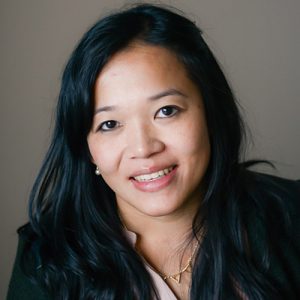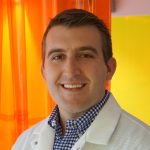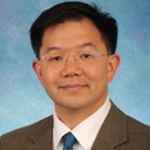About the Training
Goals
Success of cancer nanomedicine depends on scientists with a cross-disciplinary background in nanotechnology, cancer biology and clinical medicine. Our goal is to equip a cohort of outstanding young scientists with the multidisciplinary concepts and skills to improve cancer diagnosis and therapy based on concepts, tools and discoveries made in nanoscience and nanotechnology. The Carolina Cancer Nanotechnology Training Program (C-CNTP) has a very strong and balanced network of experienced researchers and mentors in chemistry, material and pharmaceutical sciences joined by experts in cancer biology, pharmacology, genetics, and informatics as well as clinician scientists engaged in cancer nanotechnology research. The CCNTP is supported by the NIH/NCI Alliance for Nanotechnology in Cancer grant T32 CA196589.
Elements of CCNTP Training
- A robust postdoctoral experience including focused didactic training and an intense cross-disciplinary mentored cancer nanotechnology research experience with established senior faculty mentors from complementary fields.
- Individualized cross-disciplinary education using innovative instructional tools.
- Intensive training with Integrated Learning Accelerating Module in conjunction with flipped classrooms during the initial period in the program to remediate differences in backgrounds.
- Workshops and didactic courses during the subsequent training period to deepen knowledge and understanding in key areas of cancer nanotechnology research, advanced technology and translational science aspects. Each workshop will be approximately equivalent to a one credit graduate course and trainees will be expected to complete at least three workshops during two years of training. The background and interests of the trainee along with the advice of the faculty mentors will guide the choice of the workshops and courses.
- Opportunities to conduct original cancer nanotechnology research projects, applications for cancer nanotechnology pilot grants within C-CNTP and other grants available at UNC-Chapel Hill. All trainees will submit proposals for external funding in the second year of training (e.g., K99/R00, K23, K08, DoD).
- Writing and proposal submissions that build written and oral communications skills needed to publish manuscripts in scholarly journals, report results at scientific meetings, and write successful individual extramural support applications focused on problems of cancer nanotechnology.
Individual Development Plans
Individual Development Plan (IDP) documents for postdoctoral trainees provide a framework that identifies both professional development needs and career objectives for the trainee. IDPs help the postdoc to identify both short-term goals and help define milestones along the way to achieving specific long-term objectives. IDPs also serve as a communication tool between postdoctoral scholars and their mentors.
Program Administration:
The program directors provide oversight of the C-CNTP and are responsible for the implementation of all NIH policies, procedures, and processes. They oversee the C-CNTP functions, create the C-CNTP program structure, take the lead in the mentoring program, and provide vision and scientific leadership.

Alexander Kabanov, Ph.D., D.Sci.
Program Director, Carolina Cancer Nanotechnology Training Program
Mescal S. Ferguson Distinguished Professor
Division of Pharmacoengineering and Molecular Pharmaceutics
Director, Center for Nanotechnology in Drug Delivery
Director, Carolina Institute for Nanomedicine
UNC Eshelman School of Pharmacy
Lineberger Comprehensive Cancer Center
UNC School of Medicine
Administrative Support:
Previous Administration:

Andy Wang, M.D.
2015 – 2021 Associate Director, Carolina Cancer Nanotechnology Training Program
Currently A. Kenneth Pye Professor in Cancer Research and Associate Vice Chair for Research in the Department of Radiation Oncology
The University of Texas Southwestern Medical Center
External Advisory Committee:
The EAC selected by the program directors is composed of international scientists representing the key areas of the C-CNTP. The committee provides an independent assessment of the program’s effectiveness. This committee will also provide input regarding national trends in cancer nanotechnology training, and evaluating the UNC program in comparison with other US programs.

Gabriel Lopez-Berestein, M.D. is a Professor of Medicine, Cancer Biology, and Experimental Therapeutics, at the University of Texas M. D. Anderson Cancer Center. He is also a Professor of NanoMedicine and Biomedical Engineering and had served a co-director of Texas Center for Cancer Nanomedicine at the University of Texas Health Science Center. Lopez-Berestein is a clinician-scientist well known for his studies of the role of the monocyte lineage and cell signaling in cancer and development of nanoparticle-based therapeutics in cancer and infectious diseases. He has trained more than 100 graduate students and postdocs and served a PI of a T32 training Grant in Bioimmunotherapy for Physician Scientists and a U54 Partnership in Excellence for Cancer Research.

Mark W. Dewhirst, D.V.M., Ph.D. is the Gustavo S. Montana Professor of Radiation Oncology and Vice Director for Basic Science in the Duke Cancer Institute. Dr. Dewhirst has spent 30 years studying causes of tumor hypoxia, the use of hyperthermia and drug delivery to treat cancer. For seminal contributions to these fields he has been named a fellow of AAPS and ASTRO and awarded an ASTRO Gold Medical. Dewhirst has trained over 50 graduate students, postdocs and junior faculty many of whom have obtained DOD and NIH fellowships, K awards and first R01 grants. He received “Mentor of the Year” awards from Duke Comprehensive Cancer Center, the Medical Physics Graduate Training programs and the School of Medicine, and has served Associate Dean of Faculty Mentoring in the Duke School of Medicine.

Andrei Gudkov, Ph.D., Dr.Sci. is the Garman Family Professor and Chair in Cell Stress Biology, and Senior Vice President of Basic Science at the Roswell Park Cancer Institute (RPCI). His research interests include various aspects of gene- and drug-discovery in oncology with specific focus on mechanisms of deregulation and pharmacological targeting of major stress response pathways in cancer. He pioneered several approaches to protection of normal tissues from the side effects of cancer treatment by radiation and chemotherapy, including the development of p53 and NF-kB modulators. He has trained over 50 graduate and postdoctoral students and is a PI on the American Cancer Society Institutional Research Grant that provides mentoring and pilot funding to junior investigators at RPCI.
 Dr. Tamara Minko, PhD is a Distinguished Professor and Chair, Department of Pharmaceutics at the Rutgers, The State University of New Jersey. Dr. Minko is also a member of the Cancer Institute of the New Jersey and Environmental and Occupational Health Sciences Institute. She is a world-renowned expert in drug delivery, nanomedicine, treatment and imaging of different types of cancers and lung diseases including pulmonary and cystic fibrosis. She has authored and co-authored over 400 publications and trained numerous graduate students and postdocs, several of whom have become faculty at academic institutions. Dr. Minko is the past President of the CRS and an elected fellow of the CRS, American Association of Pharmaceutical Scientists (AAPS), and the AIMBE.
Dr. Tamara Minko, PhD is a Distinguished Professor and Chair, Department of Pharmaceutics at the Rutgers, The State University of New Jersey. Dr. Minko is also a member of the Cancer Institute of the New Jersey and Environmental and Occupational Health Sciences Institute. She is a world-renowned expert in drug delivery, nanomedicine, treatment and imaging of different types of cancers and lung diseases including pulmonary and cystic fibrosis. She has authored and co-authored over 400 publications and trained numerous graduate students and postdocs, several of whom have become faculty at academic institutions. Dr. Minko is the past President of the CRS and an elected fellow of the CRS, American Association of Pharmaceutical Scientists (AAPS), and the AIMBE.

Tyrone Porter, Ph.D. is a Professor of Biomedical Engineering and holder of the Myron L. Begeman Fellowship in Engineering at the University of Texas at Austin. Dr. Porter is a staunch advocate for diversity and inclusion in the sciences and is an accomplished scholar in biomedical ultrasound and nanomedicine. His research focuses on ultrasound technologies with chemical and biomolecular engineered vesicles for diagnostic and therapeutic applications. Dr. Porter’s overall goal is to push the application of ultrasound technology in new and exciting directions, including immunomodulation and reversible opening of the blood-brain barrier. In cancer research, he focuses on development of stimuli-responsive nanoparticles for localized delivery of anticancer agents and image-based assessment of macromoleculer and nanoparticulate delivery in solid tumors with and without modulation of the tumor microenvironment. Dr. Porter has been inducted as a Fellow of the Acoustical Society of America and the American Institute of Medical and Biological Engineering for his contributions to the advancement of therapeutic ultrasound.
External Advisory Committee Alumni:

Paula Hammond, Ph.D. is the David H. Koch Professor of Chemical Engineering at the Massachusetts Institute of Technology. Her research interests include the molecular design and synthesis of self-assembling polymeric systems for a range of electro-optical, electro-mechanical and biological applications. In cancer research, she has focused on the generation of polymer-based films and nanoparticles for drug delivery. She has numerous research and service awards including the Harvard Foundation 2010 Scientist of the Year Award as part of the annual Albert Einstein Science Conference: Advancing Minorities and Women in Science, Engineering, and Mathematics.
External Advisory Committee Member 2015 – 2021
 Dr. Chad A. Mirkin is the Director of the International Institute for Nanotechnology and the George B. Rathmann Prof. of Chemistry, Prof. of Chemical and Biological Engineering, Prof. of Biomedical Engineering, Prof. of Materials Science & Engineering, and Prof. of Medicine at Northwestern University.
Dr. Chad A. Mirkin is the Director of the International Institute for Nanotechnology and the George B. Rathmann Prof. of Chemistry, Prof. of Chemical and Biological Engineering, Prof. of Biomedical Engineering, Prof. of Materials Science & Engineering, and Prof. of Medicine at Northwestern University.
External Advisory Committee Member 2015 – 2019
Internal Steering Committee:
The Internal Steering Committee (ISC) will be the key functional group for the C-CNTP. The ISC will comprise senior leaders at UNC Chapel Hill with active research and training interests in areas relevant to cancer nanotechnology.
The ISC’s will oversee the C-CNTP research and training activities and provide systematic internal evaluation of the program and administrative advice. They will guide the overall functioning of C-CNTP including:
- Nomination and selection of trainees;
- Approval of mentor/co-mentor pairings and mentoring committee’s appointments;
- Nomination and selection process for new faculty for the C-CNTP;
- Advising on C-CNTP courses and workshops and choice of faculty to conduct the workshops;
- Monitoring progress of trainees including annual presentations to the ISC;
- Evaluating the overall training program and assisting the PI in reporting to the NCI. The ISC will meet with the EAC to receive its report and recommendations on an annual basis as part of the program evaluation process.
 Gaorav Gupta, MD, Ph.D. is an Associate Professor, Radiation Oncology, Biochemistry and Biophysics, and a member of the Lineberger Comprehensive Cancer Center.
Gaorav Gupta, MD, Ph.D. is an Associate Professor, Radiation Oncology, Biochemistry and Biophysics, and a member of the Lineberger Comprehensive Cancer Center.

Juliane Nguyen, Ph.D. is the Vice Chair and a Professor in the Division of Pharmacoengineering and Molecular Pharmaceutics, UNC Eshelman School of Pharmacy, and a Professor in the Department of Biomedical Engineering.

John Sondek, Ph.D. is a Professor in the Departments of Pharmacology and Biochemistry & Biophysics and a member of the Lineberger Comprehensive Cancer Center.
Internal Steering Committee Alumni:

H. Shelton Earp, III, M.D. is the Director of UNC Lineberger Comprehensive Cancer Center, Lineberger Professor of Cancer Research, Director, UNC Cancer Care, Professor of Medicine & Pharmacology, UNC LCCC.

Stephen Frye, Ph.D. is a Professor and Director of the Center for Integrative Chemical Biology and Drug Discovery at the UNC Eshelman School of Pharmacy.
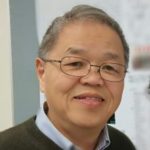
Leaf Huang, Ph.D. is the Fred Eshelman Distinguished Professor, Division of Pharmacoengineering and Molecular Pharmaceutics in the Eshelman School of Pharmacy, University of North Carolina at Chapel Hill.
The program faculty represent a distinguished group of scholars with an impressive record of productivity and extramural funding success and training accomplishments. Program faculty will play critical roles in the C-CNTP. This includes service as a primary mentor or co-mentor, and teaching contributions to workshops, courses and seminars. Both primary and co-mentorship imply a significant commitment of time and effort on the part of the faculty member.
The Carolina Cancer Nanotechnology Training Program and the University of North Carolina at Chapel Hill are committed to the principles of diversity and equal opportunity and are particularly interested in receiving applications from a broad spectrum of people, including minorities, protected veterans, and individuals with disabilities.
The Carolina Cancer Nanotechnology Training Program is committed to providing reasonable accommodations. Individuals with disabilities seeking additional information about services available on the UNC campus may visit these sites:
-
- UNC Accessibility Resources and Services (https://accessibility.unc.edu/)
- UNC Equal Opportunity and Compliance Office, which administers the ADA program for faculty and staff (http://eoc.unc.edu/)







